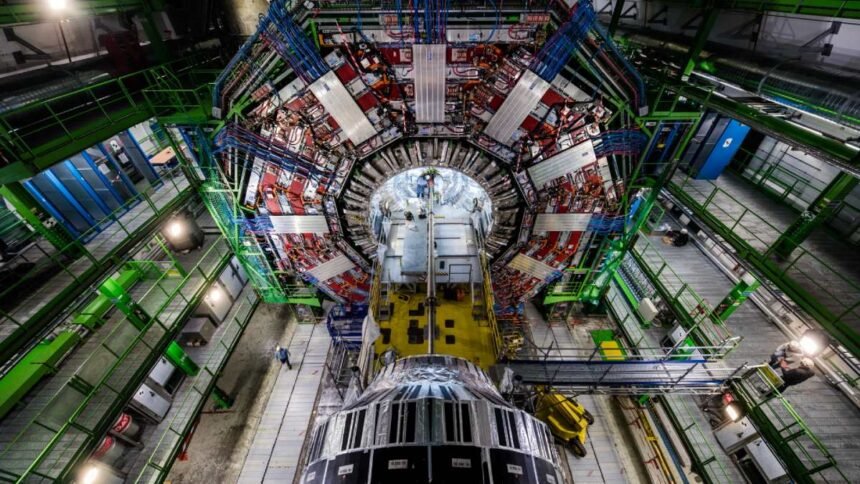India’s substantial contributions and prospects for an even greater role in the upgrade of the Large Hadron Collider (LHC) have garnered attention from the European Organization for Nuclear Research (CERN). The LHC, known as the world’s most powerful particle accelerator, plays a vital role in unraveling the mysteries of the fundamental structure of matter. According to Archana Sharma, a prominent CERN scientist of Indian origin, the upcoming upgrade in 2025 holds immense promise for India’s researchers and industrial sectors.
The LHC, a remarkable 27-kilometer ring of superconducting magnets concealed underground, stretches between the borders of France and Switzerland. Its significance in advancing scientific understanding cannot be overstated. Scientists at CERN have been diligently working to enhance the capabilities of the LHC, and this effort presents a golden opportunity for India to deepen its involvement in groundbreaking research and technological advancements.
Archana Sharma, in an exclusive interview with PTI, expressed her excitement over the major upgrade set to unfold. She emphasized that India’s scientific community and industries stand to reap significant benefits from this development. By pushing the boundaries of knowledge and innovation, India can position itself at the forefront of global scientific exploration.
The LHC’s upgrade is poised to open new avenues for India’s researchers. With enhanced capabilities, scientists will be able to explore hitherto uncharted territories in the realm of particle physics. This expansion of scientific frontiers not only contributes to humanity’s understanding of the universe but also presents opportunities for practical applications in various fields.
India’s growing involvement in the LHC project is a testament to its rapidly advancing scientific prowess. Over the years, Indian scientists have played a pivotal role in numerous international collaborations, garnering recognition for their contributions to various cutting-edge research projects. By engaging with the LHC upgrade, India has the chance to consolidate its position on the global scientific stage and foster international collaborations.
Beyond the realm of academia, the LHC upgrade holds immense promise for India’s industrial sector as well. The development of sophisticated technologies and equipment required for the upgrade can stimulate innovation within the country. India’s industry stands to gain valuable experience and expertise, which can subsequently fuel advancements in other sectors, thereby bolstering the nation’s overall technological growth.
Collaborations with international organizations like CERN offer mutual benefits. While India’s participation enriches global research endeavors, it also presents an opportunity for Indian researchers to gain exposure to state-of-the-art facilities and knowledge exchange. Such interactions can nurture the next generation of scientists and engineers in India, fostering a culture of innovation and scientific inquiry.
The LHC upgrade, slated for 2025, calls for concerted efforts from various stakeholders in India. Government agencies, research institutions, and industries need to come together to support and facilitate this ambitious endeavor. Adequate funding, infrastructure, and skilled workforce are essential to ensure India’s successful engagement with the project.
Indian policymakers have recognized the significance of scientific research and have taken measures to bolster the country’s research ecosystem. Collaborations with global organizations and participation in ambitious projects like the LHC upgrade align with India’s vision of becoming a knowledge-based economy.
India’s potential to play a major role in the upgrade of the Large Hadron Collider has garnered recognition from the European Organization for Nuclear Research (CERN). With the LHC upgrade expected in 2025, India stands at the precipice of unlocking new scientific discoveries and technological advancements. By actively participating in this ambitious project, India’s scientific community and industrial sectors have the opportunity to contribute to cutting-edge research and propel the nation’s growth as a global scientific powerhouse. The path to a brighter, more innovative future lies in collaboration, investment, and unwavering commitment to scientific excellence.



